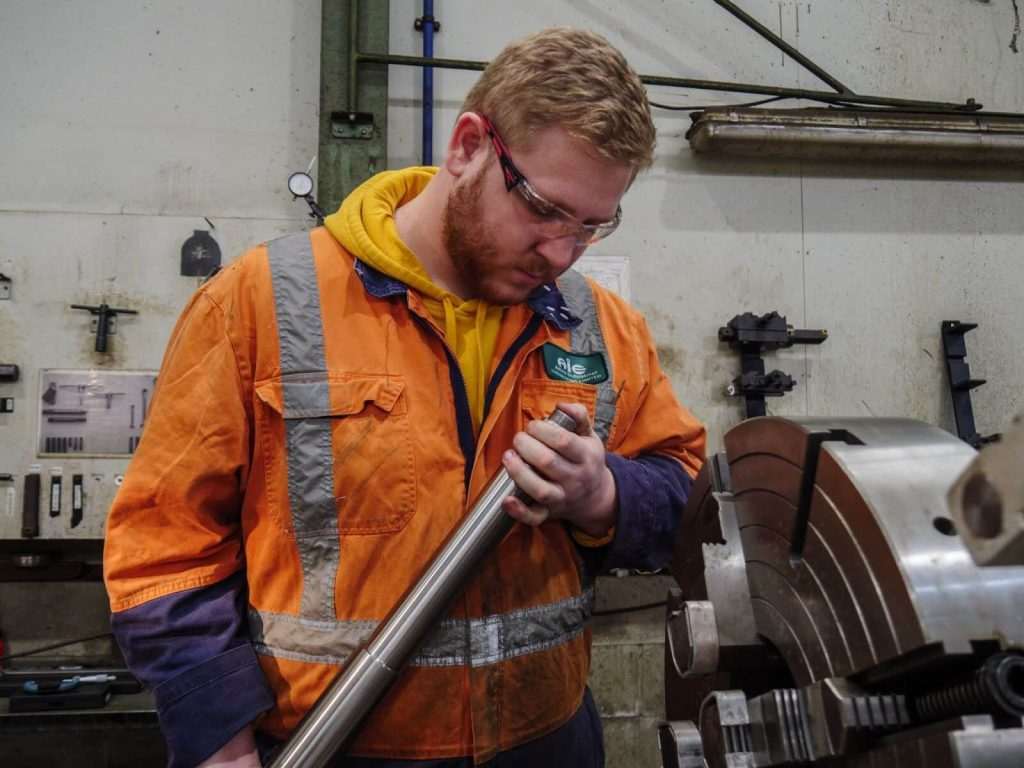e ngineering
a brighter future
NEWS

13 August 2024
Engineering apprenticeships offer a unique pathway for aspiring NZ engineers. They’re a way for those passionate about engineering to gain experience in the field while learning important processes and being paid for their work. These programmes are designed to prepare aspiring engineers for a successful career by providing them with practical skills and a deep understanding of engineering principles that professional engineers deal with on a day-to-day basis.
These programmes help pave the way for enthusiastic beginners of all experience levels. With no upper age limit, anyone with the drive to learn can apply for an apprenticeship.
Hands-On Experience. Apprenticeships provide practical, on-the-job training that cannot be replicated in a classroom. This hands-on engineering experience is invaluable for developing the technical skills and confidence needed to perform complex engineering tasks.
Mentorship And Guidance. Apprentices learn from seasoned engineering professionals who can provide mentorship and guidance. This support helps apprentices navigate the challenges of the industry while honing their skills.
Employment Opportunities. Engineering apprenticeships are a great stepping stone towards rewarding engineering jobs. Many apprentices stay with the companies they train with, and the networking they do can help them find good jobs in the future.
While there are different programmes available, there are several common elements that you can expect during your programme:
Practical Training. One of the main components of an engineering apprenticeship is practical training. This involves working on real projects and tasks under the supervision of experienced engineers. You will learn how to use various tools and machinery, understand engineering processes and develop the skills necessary to perform your job effectively.
Technical Education. In addition to practical training, engineering apprenticeships include a theoretical component. This may involve attending classes, completing online courses or engaging in self-study.
Even when you’re not actively working, it’s wise to continue to learn on your own so that you can stay sharp.
Mentorship. Mentorship is a critical aspect of an engineering apprenticeship. Experienced engineers provide guidance, support and feedback to help apprentices develop their skills and knowledge. Mentors can offer industry insights, share best practices and help apprentices navigate the challenges they may encounter.
Earn While You Learn. One advantage is the ability to earn a wage while you learn. Apprentices are compensated for their work, so you can financially support yourself while learning.
Once you begin your programme, you should take steps to maximise the experience and skills you gain when you work. Some tips to help you make the most of your apprenticeship are:
Prepare Well When Applying. Before you apply, research the apprenticeship programme you’re considering. Think about what kind of engineering apprenticeships you’re interested in so that you know what kind of course would be best for you. Additionally, think about what questions you may be asked by your prospective company or the people you’re working with and reflect on your potential responses.
Set Clear Goals. Create both short and long-term goals for your apprenticeship so that you have something to work towards. Short-term goals could include mastering specific skills, while long-term goals could involve advancing to a particular position that interests you.
Make sure you keep your goals realistic and tangible. Setting personal goals that are far too ambitious can lead to serious disappointment.
Stay Organised. Do your best to balance work, study and your personal life. Work on your time management skills to meet all your responsibilities while taking care of your physical and mental health. Getting used to a new schedule can be difficult, so give yourself time and stay consistent to build up good habits while taking care of your obligations.
Know When To Ask For Help. Asking for help can be hard, especially if you want to appear capable and independent. However, remember that you’re there to learn and grow, and it’s okay to reach out for help when you need it. Not knowing everything is okay, especially considering you’re an apprentice. Recognise when you need help, and don’t hesitate to ask for assistance from your mentor or colleagues. Internalise the help you receive and take notes if you need to so that you can continue to grow as an engineer.
If you do your apprenticeship with us at ATNZ, then you will have a dedicated account manager who will act as your mentor. They will visit you once a month, and are also available over the phone whenever you need assistance. Additionally, there are study groups in many areas, as well as online study groups, who are available for most weeks. To make the most of your apprenticeship, reach out and stay connected with your mentor and fellow apprentices.
Stay Committed To Continuous Learning. Engineering is a constantly evolving field. Stay curious and keep learning by reading industry publications, attending workshops and seeking out additional learning opportunities.
At ATNZ, we specialise in helping hopeful aspiring engineers like yourself find apprenticeships that are right for them. We have a range of programmes to consider, including mechanical engineering, engineering fabrication, refrigeration and air conditioning, mechanical building services and welding programmes.
We at ATNZ support learners of all races, genders and backgrounds, and we encourage everyone who’s interested in engineering to reach out to us. We give particular support to Maori, Pasifika and women learners, and we invite you to apply for ATNZ apprenticeships and other programmes. If you want to learn, then we want to help you, and we’d be thrilled to discover the right path for you.
To book a chat with our friendly team, please contact us at .
ATNZ: Set a foundation for a successful, rewarding career as an engineer.
